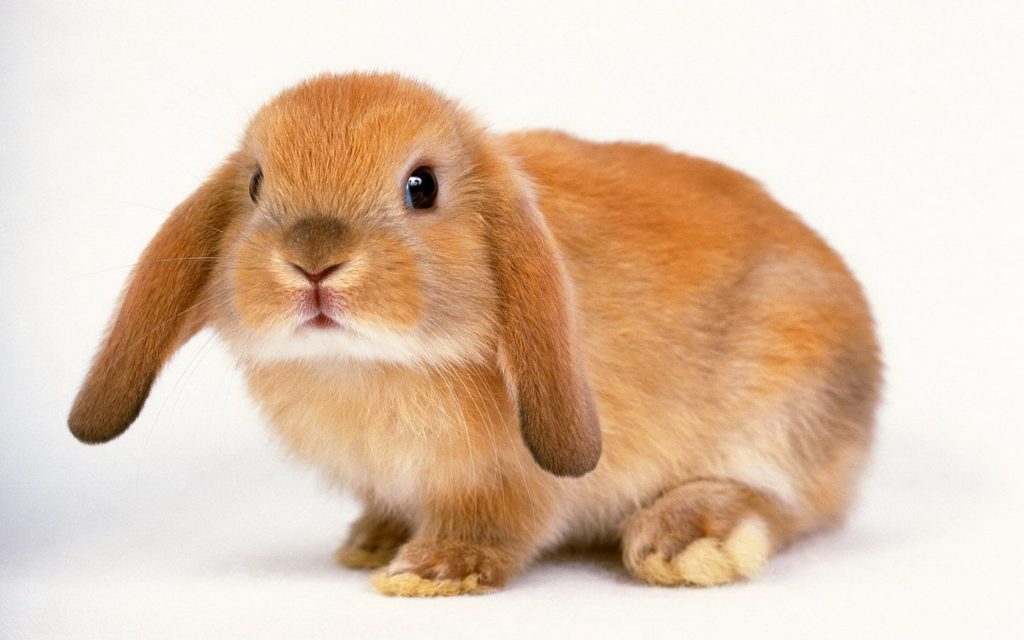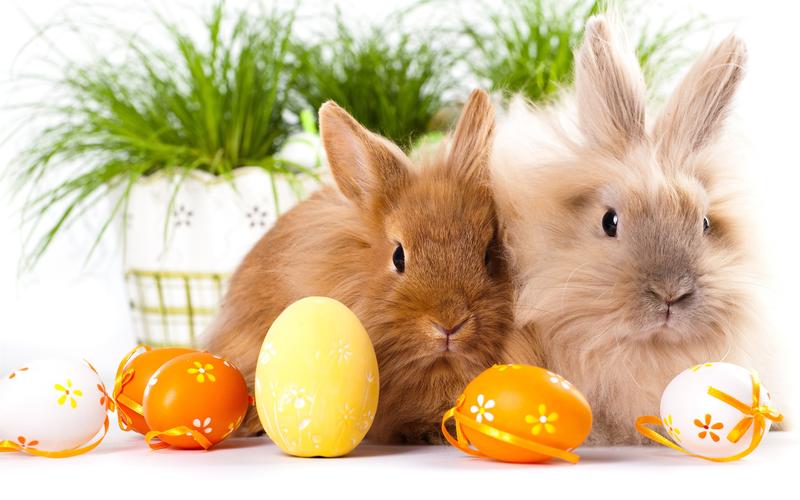Rabbits are beloved pets known for their gentle nature and adorable appearance. Proper nutrition is crucial to their health and well-being, and understanding how much food a bunny should eat daily is essential for responsible rabbit care. This article explores the dietary requirements of rabbits, including hay, fresh vegetables, pellets, and treats, providing comprehensive guidelines to ensure optimal nutrition for pet rabbits.
Introduction to Rabbit Nutrition
Rabbits are herbivores with specialized digestive systems designed to process high-fiber plant material. In the wild, their diet consists mainly of grasses, leaves, and other vegetation. Pet rabbits require a balanced diet that mimics their natural eating habits to maintain digestive health, prevent obesity, and support overall wellness.
Why Proper Nutrition is Important
Proper nutrition is vital for rabbits to thrive. A well-balanced diet supports dental health, promotes healthy digestion, strengthens the immune system, and maintains a healthy weight. Understanding the nutritional needs of rabbits ensures that pet owners can provide appropriate care and prevent common health issues related to poor diet.
Key Components of a Rabbit’s Diet
A rabbit’s diet should consist of several key components, each serving a specific nutritional purpose. These components include:

1. Hay
Hay is the cornerstone of a rabbit’s diet and should be available at all times. It provides essential fiber that supports healthy digestion and wears down a rabbit’s continuously growing teeth. The types of hay commonly fed to rabbits include:
Timothy Hay: A staple hay for rabbits, known for its high fiber content and suitable for rabbits of all ages.
Meadow Hay: Offers a variety of grasses and herbs, providing nutritional diversity and enrichment.
Orchard Grass: Similar to timothy hay in nutritional content, offering a different texture and flavor for variety.
2. Fresh Vegetables
Fresh vegetables are an essential part of a rabbit’s diet, providing vitamins, minerals, and additional fiber. Vegetables should be introduced gradually to avoid digestive upset and should be fresh, washed thoroughly, and fed in appropriate portions. Suitable vegetables for rabbits include:
Leafy Greens: Such as romaine lettuce, kale, parsley, and dandelion greens.
Herbs: Like cilantro, basil, and mint, providing additional flavor and nutrients.
Vegetables: Such as carrots, bell peppers, broccoli (including leaves), and cucumber (without seeds).
3. Pellets
High-quality rabbit pellets provide concentrated nutrition and should be fed in moderation to complement hay and vegetables. Pellets formulated specifically for rabbits ensure they receive essential vitamins and minerals. Choose pellets with high fiber content (18-20%) and avoid mixes with added seeds and treats, which can be high in sugar and fat.
4. Fresh Water
Fresh, clean water should be available to rabbits at all times. Water bottles or bowls should be checked and refilled daily to ensure hydration, especially in warmer climates or during periods of increased activity.
5. Treats
Treats should be given sparingly to rabbits and should not replace their staple diet of hay, vegetables, and pellets. Commercial rabbit treats or small amounts of fruit (e.g., apple slices, strawberries) can be offered occasionally as rewards or for enrichment.

How Much Food Should a Bunny Eat Each Day?
Determining the appropriate amount of food for a bunny depends on several factors, including age, size, activity level, and overall health. Providing the correct portions of hay, vegetables, pellets, and treats ensures that rabbits receive balanced nutrition without overfeeding or underfeeding.
Hay
Hay should constitute the majority of a rabbit’s diet, accounting for approximately 70-80% of their daily intake. Adult rabbits should have unlimited access to hay throughout the day, allowing them to graze as they would in the wild. Hay provides essential fiber for digestive health and helps maintain dental hygiene by wearing down teeth naturally.
Fresh Vegetables
Fresh vegetables should make up about 10-15% of a rabbit’s daily diet. Offer a variety of leafy greens, herbs, and vegetables daily, aiming for at least two cups of fresh vegetables per 5 pounds of body weight. Introduce new vegetables gradually to monitor for any signs of digestive upset or allergies.
See Also: How Do You Get Rabbits to Bond With You?
Pellets
Pellets should comprise approximately 5-10% of a rabbit’s daily diet. Offer pellets formulated specifically for rabbits, measuring the amount based on the manufacturer’s recommendations for the rabbit’s age and weight. Avoid overfeeding pellets, as excessive consumption can lead to obesity and other health issues.
Treats
Treats should be given sparingly and should not exceed 5% of a rabbit’s daily diet. Limit treats to small amounts of fresh fruit (e.g., a few small pieces of apple or banana) or commercial rabbit treats designed to be low in sugar and fat. Monitor the rabbit’s weight and adjust treat portions accordingly to maintain a healthy diet.
Feeding Guidelines Based on Age and Life Stage
The nutritional needs of rabbits can vary depending on their age, life stage, and reproductive status. Understanding these factors helps tailor their diet to support growth, maintenance, or specific health needs.
Juvenile Rabbits (Under 6 Months)
Juvenile rabbits require a diet rich in nutrients to support growth and development. Feed unlimited amounts of alfalfa hay, which is higher in protein and calcium, along with fresh vegetables and small portions of high-quality pellets formulated for young rabbits. Gradually transition to timothy hay and reduce pellet intake as the rabbit reaches maturity.
Adult Rabbits (6 Months and Older)
Adult rabbits should primarily eat timothy hay, along with a variety of fresh vegetables and moderate amounts of high-fiber pellets. Adjust the amount of pellets based on the rabbit’s activity level and weight management goals. Monitor the rabbit’s body condition score (BCS) and adjust the diet as needed to maintain a healthy weight.
Senior Rabbits (7 Years and Older)
Senior rabbits may have reduced activity levels and specific health concerns, such as dental issues or arthritis. Offer unlimited timothy hay and ensure easy access to fresh water. Adjust the diet to accommodate any medical conditions or changes in appetite, consulting a veterinarian for tailored dietary recommendations.
Common Feeding Mistakes to Avoid
To ensure rabbits receive optimal nutrition, avoid these common feeding mistakes that can impact their health and well-being:
Overfeeding Pellets: Excessive pellet consumption can lead to obesity, dental problems, and digestive issues. Follow recommended serving sizes based on the rabbit’s age and weight.
Inadequate Hay: Hay is essential for digestive health and dental wear. Ensure rabbits have unlimited access to fresh, high-quality hay at all times.
Unbalanced Diet: A diet lacking in variety or essential nutrients can lead to nutritional deficiencies. Provide a diverse selection of fresh vegetables and monitor the rabbit’s overall intake.
Too Many Treats: Treats should be limited and offered in small quantities to avoid excess sugar and calories. Choose treats that are low in sugar and fat or offer fresh fruits sparingly.
Conclusion
Understanding how much food a bunny should eat each day is essential for providing optimal nutrition and promoting overall health. By offering a balanced diet of hay, fresh vegetables, pellets, and occasional treats, rabbit owners can ensure their pets receive the nutrients they need to thrive. Monitoring the rabbit’s weight, adjusting portions based on age and activity level, and consulting a veterinarian for personalized dietary advice are crucial steps in maintaining a healthy diet for pet rabbits. With proper nutrition and care, rabbits can enjoy a happy and healthy life as cherished companions in households around the world.























































